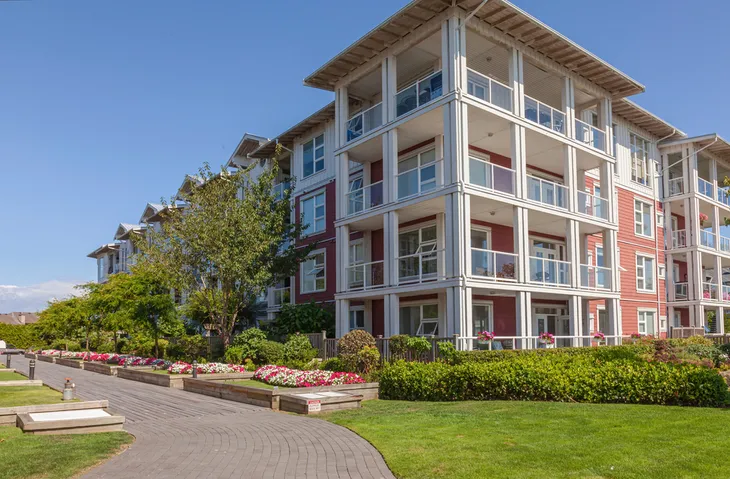As the cost of living continues to increase, it can be harder for seniors with a fixed income to afford housing. This makes it more important than ever to find the right community where you can enjoy life comfortably. Whether it be government initiatives, subsidies, or cheaper alternatives to traditional housing, low-income seniors have several options for housing. You can find affordable senior housing by searching online.
There might be different criteria for low-income seniors depending on the housing program. Search online to learn more and find out whether you qualify for low-income housing.
Here are six types of low-income housing seniors can consider.
1. Co-op Housing
Co-op housing is a form of housing that’s becoming more popular among seniors. Property owners are looking to enhance the lives of seniors living in these establishments. The Senior Cooperative Foundation Board reports there are currently over 125 senior co-ops providing 7,700 units to over 10,500 residents.
Buying into a co-op home can be cost-effective for seniors. By purchasing shares in the corporation that owns the building, residents can lease a specific unit and gain access to common areas. Your share could end up growing one to two percent annually and potentially lead to a small return later on.
An additional perk to living in co-op housing is being able to apply for a membership that gives senior residents voting rights into how the building is managed. Plus, you’ll be able to save money by utilizing shared amenities instead of buying your own.
2. Virtual Retirement Communities
If you want to remain living in your current home but need to save money, consider looking into virtual retirement communities. This digital platform allows you to affordably access senior living services in your area.
Pay an annual membership to gain access to services such as:
- Home repairs;
- Transportation;
- Pet care;
- Assemblies and lectures with senior service providers, and;
- Housekeeping.
While this isn’t a direct way to score lower housing costs, it’s a way for you to reap the rewards of traditional retirement homes without having to pay the hefty costs that come with them.
An annual membership can cost as little as $450 for individuals and $600 for couples.
3. Public Housing
Seniors who qualify as low-income individuals are eligible to apply for public housing. With over 1.2 million households living in public housing units, these homes can come in the form of many different residences, from single-family houses to high-rise apartments. As long as you comply with the lease, you can stay in public housing for as long as you want.
Being in public housing allows seniors to remain living in their home communities. Around 31-percent of public housing units are occupied by seniors. It’s more budget-friendly compared to retirement communities, as costs are determined by the highest of the following:
- 30 percent of your monthly income minus deductions;
- 10 percent of your monthly income;
- Your welfare rent, if applicable, or;
- An amount set by the local housing agency (which can range from $25 to $50).
To learn more about public housing, contact your local Public Housing Agency. These workers are responsible for the management and operation of these local housing programs.
4. Housing Choice Voucher
An alternative to public housing is the Housing Choice voucher. This federal program is designed for low-income families and seniors to receive assistance in paying their monthly rent. This program is not limited to public housing and lets you choose where you want to live.
To qualify, your income must not exceed 50-percent of the median income in the area you reside in. The voucher you’re given will vary from senior-to-senior. Your local Public Housing Agency will determine the maximum amount of housing assistance available. Landlords will have to agree for seniors to rent under this program.
5. Section 202 Supportive Housing
Section 202 Supportive Housing for the Elderly program works to expand the supply of affordable housing with supportive services for the elderly. Unlike the Housing Choice Voucher, this program is specifically designed for seniors.
It has two main functions. They are:
- Providing funds and operating assistance to nonprofits that work to construct, rehabilitate, or acquire supportive housing for very low-income elderly, and;
- Providing rental assistance (known as Project Rental Assistance Contracts), which makes up the difference between the reduced rents that eligible seniors are required to pay and the operating expenses of a particular development.
The communities that come from this funding will vary. They can help seniors to live independently while providing support related to cleaning, cooking, transportation, and other lifestyle needs.
To qualify, your household must have at least one person 62 years of age or older.
6. Low-Income Housing Tax Credit
The Low-Income Housing Tax Credit (LIHTC) is a federally funded program that ensures there is enough low-income housing to meet demand. So far, more than 107,000 units were placed in service from 1995 to 2017.
Building owners set aside units for low-income residents and accept the rent amount specified by the government to participate in the program and qualify for federal tax credits. Seniors can take advantage of this initiative by applying for a LIHTC in their community. So, look at affordable housing websites that feature the LIHTC program to find a unit.
 Shutterstock
ShutterstockSearch Online to Find Affordable Housing
You have options when it comes to housing. As a low-income senior, there are programs that put it in place for you to live comfortably. Start an online search to find out if you fit the criteria and learn how to apply for affordable housing.









